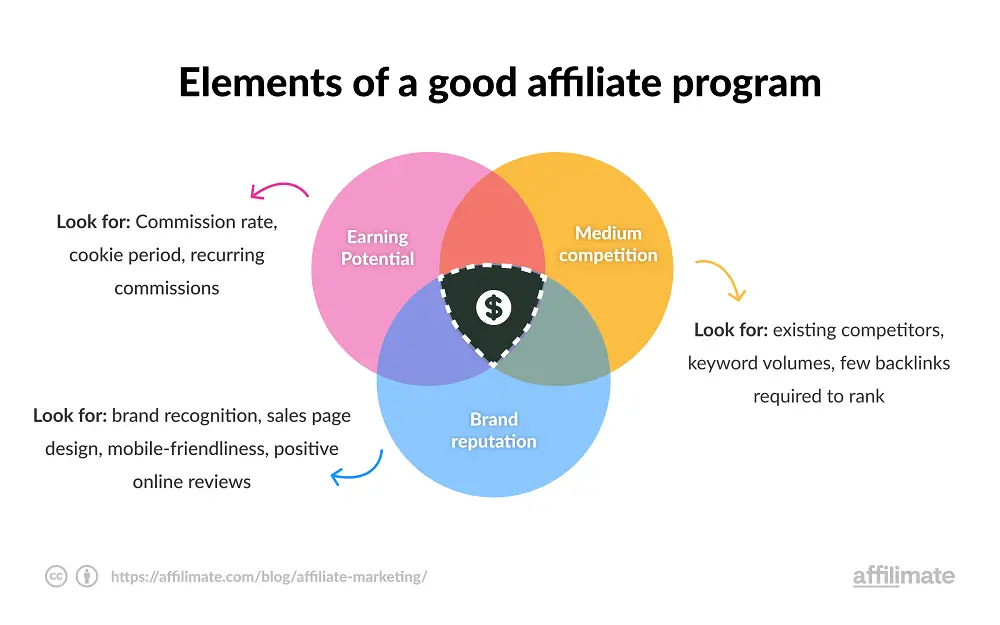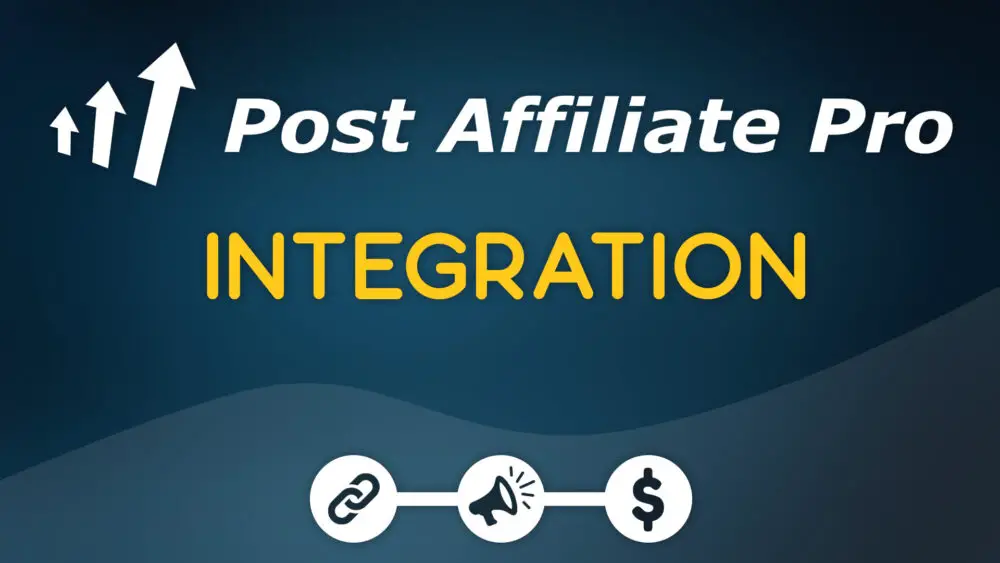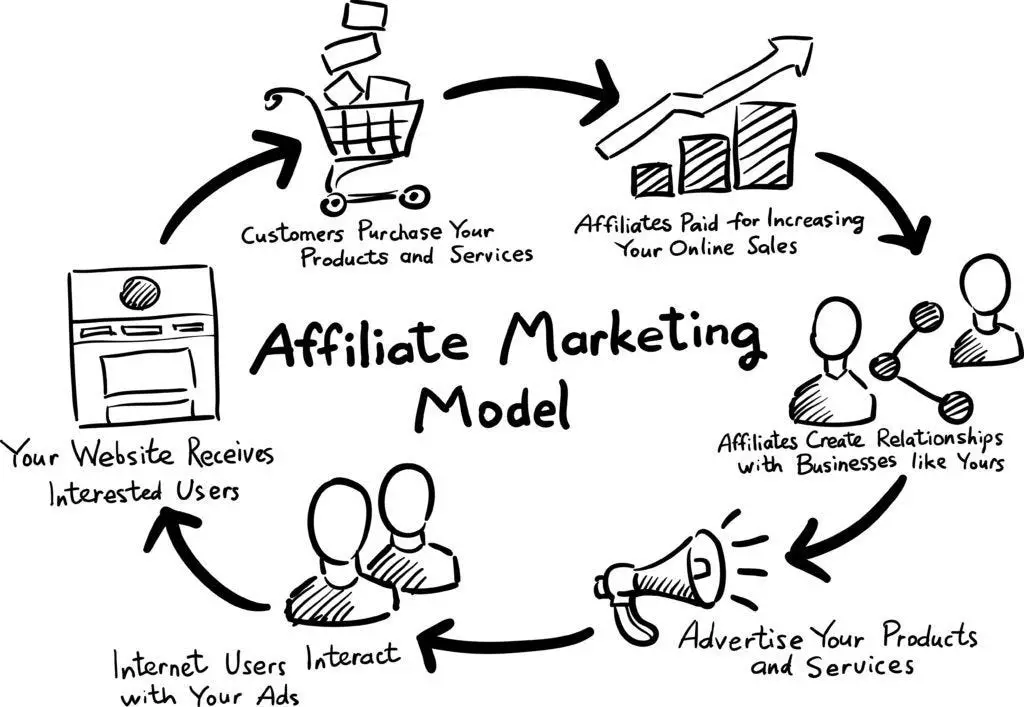Streamline Your Business: Top Affiliate Marketing Software

In today's digital landscape, affiliate marketing has emerged as a powerful strategy for businesses to expand their reach and drive revenue growth. By partnering with influential publishers and content creators, companies can tap into vast audiences and leverage the power of word-of-mouth marketing. However, managing an effective affiliate program can be a daunting task, especially as your business scales.
Enter affiliate marketing software – a game-changing solution that streamlines the entire affiliate marketing process, from tracking and analytics to commission management and affiliate engagement. In this comprehensive guide, we'll explore the world of top affiliate marketing software, equipping you with the knowledge and insights to make an informed decision that aligns with your business goals.
Introduction to Affiliate Marketing Software

What is Affiliate Marketing Software?
Affiliate marketing software is a robust platform designed to simplify the management of your affiliate program. It acts as a centralized hub, connecting you with your affiliates and providing a suite of tools to optimize your affiliate marketing efforts. From tracking and analytics to commission management and affiliate recruitment, these software solutions handle the heavy lifting, freeing up your time and resources to focus on strategic growth.
Benefits of Using Affiliate Marketing Software
Implementing affiliate marketing software can yield numerous benefits for your business, including:
- Accurate Tracking and Analytics: Monitor your affiliate program's performance in real-time, gain insights into top-performing affiliates, and make data-driven decisions to optimize your campaigns.
- Streamlined Commission Management: Automate commission calculations, set flexible commission structures, and ensure timely and accurate payments to your affiliates.
- Improved Affiliate Engagement: Foster better relationships with your affiliates through effective communication channels, incentive programs, and transparent reporting.
- Scalability and Growth: As your affiliate program expands, affiliate marketing software can seamlessly scale to accommodate your growing needs, ensuring efficient management and continued success.
The Role of Affiliate Marketing Software in Business Growth
Affiliate marketing software plays a pivotal role in driving business growth by optimizing your affiliate program's performance. By streamlining processes, providing valuable insights, and enhancing affiliate relationships, these software solutions enable you to maximize the potential of your affiliate marketing efforts, resulting in increased revenue, brand awareness, and a competitive edge in your industry.
Understanding Affiliate Marketing
Before delving into the world of affiliate marketing software, let's revisit the fundamentals of affiliate marketing and its importance for businesses.
Basics of Affiliate Marketing
Affiliate marketing is a performance-based marketing strategy where businesses reward third-party publishers, known as affiliates, for driving traffic and sales to their products or services. Affiliates earn a commission for every successful conversion, such as a sale or lead generation, creating a win-win situation for both parties.
Components of an Affiliate Marketing Program
A successful affiliate marketing program consists of three key components:
- Merchant: The business offering products or services and running the affiliate program.
- Affiliate Network: A platform that connects merchants with affiliates and facilitates the tracking and management of affiliate relationships.
- Affiliates: Publishers, influencers, or content creators who promote the merchant's products or services in exchange for a commission.
Why Businesses Need Affiliate Marketing
Affiliate marketing offers numerous benefits for businesses, including:
- Increased Reach and Brand Awareness: By partnering with affiliates, businesses can tap into new audiences and extend their reach to potential customers.
- Cost-Effective Marketing: Affiliates are typically paid on a performance basis, meaning businesses only pay for successful conversions, making it a cost-effective marketing strategy.
- Scalability and Flexibility: Affiliate programs can be scaled up or down based on business needs, offering flexibility and adaptability to changing market conditions.
- Targeted Audience: Affiliates often have niche audiences, allowing businesses to target specific demographics and interests more effectively.
Key Features to Look for in Affiliate Marketing Software

When evaluating affiliate marketing software, it's crucial to consider the features that will best meet your business needs. Here are some essential features to look for:
Tracking and Analytics
- Click Tracking: Monitor clicks and traffic sources to understand the effectiveness of your affiliate campaigns and identify top-performing affiliates.
- Commission Tracking: Accurately track and attribute commissions to affiliates based on conversions, ensuring fair compensation and transparent reporting.
- Real-Time Reporting: Access real-time data and insights into your affiliate program's performance, allowing you to make informed decisions and adjustments on the fly.
Commission Management
- Flexible Commission Structures: Set up commission rates based on various criteria, such as product categories, affiliate performance, or custom rules, ensuring fair compensation and incentivizing top affiliates.
- Automated Commission Calculations: Streamline the commission calculation process, reducing the risk of errors and ensuring accurate payouts to your affiliates.
- Payment Processing Integration: Seamlessly integrate with payment gateways and services to automate commission payouts, minimizing manual processes and enhancing efficiency.
Affiliate Management
- Recruitment and Onboarding: Attract and onboard new affiliates with ease, streamlining the application and approval process to build a strong affiliate network.
- Communication and Engagement: Foster effective communication with your affiliates through dedicated portals, messaging tools, and engagement campaigns, ensuring a positive relationship and maximizing their promotional efforts.
- Fraud Detection and Prevention: Implement fraud detection mechanisms to identify and prevent fraudulent activities, protecting your affiliate program's integrity and ensuring accurate commission payouts.
Integration Capabilities
- E-Commerce Platform Integration: Seamlessly integrate with your existing e-commerce platform, ensuring a seamless flow of data and efficient tracking of affiliate-driven sales.
- CRM Integration: Connect your affiliate marketing software with your customer relationship management (CRM) system to streamline lead management and enhance customer insights.
- Third-Party Tool Integration: Integrate with other marketing tools, analytics platforms, and advertising networks to create a cohesive and data-driven marketing ecosystem.
User Experience and Interface
- Dashboard and Reporting: Access a user-friendly dashboard that provides a comprehensive overview of your affiliate program's performance, with customizable reporting and data visualization options.
- Affiliate Portals: Provide your affiliates with dedicated portals where they can access promotional materials, track their performance, and manage their account settings.
- Mobile Accessibility: Ensure your affiliate marketing software is mobile-friendly, allowing you and your affiliates to access critical information and manage your program on-the-go.
Top Affiliate Marketing Software Solutions
With a plethora of affiliate marketing software solutions available in the market, it can be challenging to determine which one best fits your business needs. To help you navigate the options, let's take a closer look at three top affiliate marketing software solutions:
Post Affiliate Pro: In-Depth Review

- Key Features:
- Advanced tracking and analytics capabilities
- Flexible commission structures and automated calculations
- Robust affiliate management tools, including recruitment and communication
- Seamless integration with popular e-commerce platforms and CRMs
- User-friendly interface with customizable reporting
- Pros and Cons:
- Pros: Comprehensive feature set, scalable for growing businesses, excellent customer support, frequent updates and improvements.
- Cons: Steep learning curve for beginners, limited customization options for advanced users, higher pricing for larger programs.
- Pricing and Plans:
- Post Affiliate Pro offers various pricing plans based on the number of affiliates and features required, starting from $97 per month for the basic plan.
- Enterprise pricing is available for larger businesses with custom requirements.
jvzoo: in-depth review

- Key Features:
- Robust affiliate tracking and real-time reporting
- Easy-to-use affiliate management tools, including recruitment and communication
- Integrated payment processing and commission management
- Fraud detection and prevention mechanisms
- Customizable affiliate portals and dashboards
- Pros and Cons:
- Pros: User-friendly interface, comprehensive training resources, strong community support, affordable pricing for small to medium-sized businesses.
- Cons: Limited integration options, lack of advanced customization features, customer support can be inconsistent at times.
- Pricing and Plans:
- JVZOO offers a simple pricing structure based on a commission percentage, starting from 5% for the basic plan.
- Higher-tier plans with additional features are available at higher commission rates.
Tapfiliate: In-Depth Review

- Key Features:
- Advanced tracking and attribution capabilities
- Flexible commission structures and automated payouts
- Comprehensive affiliate management tools, including recruitment and communication
- Seamless integration with popular e-commerce platforms and marketing tools
- Customizable reporting and analytics dashboards
- Pros and Cons:
- Pros: Robust feature set, scalable for enterprises, excellent customer support, frequent updates and improvements, advanced fraud detection mechanisms.
- Cons: Steep learning curve for beginners, higher pricing for smaller businesses, limited customization options for advanced users.
- Pricing and Plans:
- Tapfiliate offers a range of pricing plans based on the number of affiliates and features required, starting from $69 per month for the basic plan.
- Enterprise pricing is available for larger businesses with custom requirements.
Choosing the Right Affiliate Marketing Software
With a comprehensive understanding of the top affiliate marketing software solutions, it's time to delve into the factors that will help you choose the right software for your business.
Assessing Your Business Needs
- Program Size and Scale:
- Consider the current size of your affiliate program and its projected growth.
- Evaluate whether the software can accommodate your program's scale and future expansion plans.
- Industry and Niche:
- Determine if the software caters to your specific industry or niche, offering tailored features and integrations.
- Look for software that aligns with your business model and unique requirements.
- Future Growth Plans:
- Assess your long-term business goals and growth strategies.
- Choose software that can scale and adapt to your evolving needs, ensuring a seamless transition as your business expands.
Evaluating Software Capabilities
- Tracking and Reporting:
- Assess the software's tracking and analytics capabilities, ensuring they align with your program's requirements.
- Evaluate the depth and customizability of the reporting features to make data-driven decisions.
- Commission Management:
- Determine if the software offers flexible commission structures and automated calculations to streamline your processes.
- Ensure the commission management features align with your compensation models and affiliate incentives.
- Affiliate Management:
- Evaluate the software's affiliate management tools, including recruitment, communication, and engagement features.
- Ensure the software supports effective collaboration and relationship-building with your affiliates.
Considering Budget and Cost
- Upfront Costs:
- Assess the initial investment required for the software, including setup fees and onboarding costs.
- Determine if the upfront costs align with your budget and expected return on investment (ROI).
- Recurring Fees:
- Understand the recurring costs associated with the software, such as monthly or annual subscription fees.
- Evaluate the scalability of the pricing plans as your affiliate program grows.
- Return on Investment (ROI):
- Consider the potential ROI offered by the software by analyzing its features, capabilities, and its impact on your affiliate program's performance.
- Weigh the costs against the expected revenue growth and operational efficiencies.
Evaluating User Experience
- User Interface:
- Assess the software's user interface for its intuitive design and ease of use.
- Ensure the interface caters to both your team's needs and your affiliates' requirements.
- Customer Support:
- Evaluate the level of customer support offered by the software provider, including responsiveness, knowledge, and availability.
- Look for providers that offer comprehensive training resources and documentation.
- Training and Resources:
- Determine if the software provider offers adequate training materials, such as tutorials, webinars, or knowledge bases.
- Assess the availability of resources to support your team's onboarding and ongoing learning.
Implementing Affiliate Marketing Software
Once you've chosen the right affiliate marketing software for your business, it's time to focus on a seamless implementation process.
Planning and Preparation
- Setting Goals and KPIs:
- Define clear objectives and key performance indicators (KPIs) for your affiliate program.
- Align your software implementation with these goals to ensure a successful rollout.
- Data Migration:
- If transitioning from an existing affiliate program, plan for data migration to the new software.
- Ensure data integrity and continuity during the migration process.
- Training and Onboarding:
- Develop a comprehensive training plan for your team and affiliates to ensure a smooth transition to the new software.
- Leverage the software provider's training resources and documentation.
Integration and Setup
- E-Commerce Platform Integration:
- Seamlessly integrate your affiliate marketing software with your existing e-commerce platform.
- Ensure accurate tracking and attribution of affiliate-driven sales and conversions.
- CRM Integration:
- Connect your affiliate marketing software with your customer relationship management (CRM) system.
- Streamline lead management and enhance customer insights.
- Third-Party Tool Integration:
- Integrate your affiliate marketing software with other marketing tools, analytics platforms, and advertising networks.
- Create a cohesive and data-driven marketing ecosystem for optimal performance.
Optimizing Your Affiliate Program
- Affiliate Recruitment and Onboarding:
- Leverage the software's affiliate recruitment and onboarding features to attract and onboard new affiliates.
- Provide comprehensive training and resources to ensure a seamless transition.
- Commission Structure Optimization:
- Utilize the software's flexible commission structures to incentivize top-performing affiliates.
- Experiment with different commission models to maximize affiliate engagement and performance.
- Promotional Strategies:
- Collaborate with your affiliates to develop effective promotional strategies.
- Provide them with the necessary resources and support to maximize their promotional efforts.
Maximizing the Benefits of Affiliate Marketing Software
Implementing affiliate marketing software is just the first step. To truly maximize its potential and drive better results, consider the following tips:
Leveraging Tracking and Analytics
- Identifying Top-Performing Affiliates:
- Utilize the software's tracking and analytics capabilities to identify your top-performing affiliates.
- Recognize and reward their contributions, fostering a positive relationship.
- Optimizing Campaigns and Promotions:
- Analyze performance data to identify high-converting campaigns and promotions.
- Refine and optimize your strategies based on data-driven insights.
- Detecting and Preventing Fraud:
- Leverage the software's fraud detection mechanisms to identify and prevent fraudulent activities.
- Maintain the integrity of your affiliate program and protect your revenue.
Streamlining Commission Management
- Automating Commission Calculations:
- Take advantage of the software's automated commission calculation features.
- Reduce the risk of errors and ensure accurate and timely payouts to your affiliates.
- Efficient Payment Processing:
- Utilize the software's integrated payment processing capabilities to streamline commission payouts.
- Minimize manual processes and enhance overall efficiency.
- Transparent Reporting:
- Provide your affiliates with transparent reporting on their performance and commissions earned.
- Foster trust and strengthen relationships with your affiliate partners.
Enhancing Affiliate Relationships
- Effective Communication Strategies:
- Leverage the software's communication tools to keep your affiliates informed and engaged.
- Share updates, promotional materials, and success stories to inspire and motivate them.
- Incentive Programs and Rewards:
- Implement incentive programs and rewards to recognize and appreciate your top-performing affiliates.
- Foster a sense of loyalty and encourage continued promotional efforts.
- Affiliate Feedback and Collaboration:
- Actively seek feedback from your affiliates and involve them in the decision-making process.
- Collaborate with them to identify areas for improvement and enhance your affiliate program's effectiveness.
Common Challenges and Solutions
While affiliate marketing software offers numerous benefits, it's essential to be aware of common challenges and how to overcome them:
Tracking and Attribution Issues
- Multi-Channel Attribution:
- Accurate tracking and attribution can be challenging in complex scenarios involving multiple channels or devices.
- Implement advanced attribution models and leverage your software's tracking capabilities to ensure accurate commission calculations.
- Cookie Tracking Challenges:
- Browser restrictions and cookie-blocking technologies can impact tracking accuracy.
- Explore alternative tracking methods, such as server-side tracking or first-party data collection, to mitigate these challenges.
- Third-Party Tracking Integration:
- Integrating with third-party tracking platforms or ad networks can introduce complexities.
- Work closely with your software provider and third-party partners to ensure seamless integration and data consistency.
Compliance and Regulatory Concerns
- Data Privacy and Security:
- Ensure your affiliate marketing software complies with data privacy regulations, such as GDPR and CCPA.
- Implement robust security measures to protect sensitive data and maintain the trust of your affiliates and customers.
- Affiliate Disclosure Requirements:
- Familiarize yourself with the legal requirements for affiliate disclosures in your region or industry.
- Ensure your affiliates are transparent about their relationships with your business to avoid potential legal issues.
- Tax and Legal Considerations:
- Understand the tax implications of affiliate commissions, both for your business and your affiliates.
- Consult with legal professionals to ensure compliance with applicable laws and regulations.
Integration and Scalability
- E-Commerce Platform Integration Challenges:
- Integrating your affiliate marketing software with your e-commerce platform may present technical challenges, especially if the systems are not designed to work seamlessly together.
- Work closely with your software provider and e-commerce platform team to ensure a smooth integration process.
- Scaling for Program Growth:
- As your affiliate program grows, your software solution may struggle to keep up with increased demand and complexity.
- Choose a scalable software solution that can accommodate your program's growth and evolving needs.
- Third-Party Tool Integration Challenges:
- Integrating your affiliate marketing software with third-party tools, such as CRMs or marketing automation platforms, can be complex.
- Ensure seamless data flow and compatibility between systems to avoid data silos and inefficiencies.
Future Trends in Affiliate Marketing Software

The affiliate marketing software industry is constantly evolving, with new features and technologies emerging to meet the changing needs of businesses and affiliates. Here are some future trends to watch out for:
Artificial Intelligence and Machine Learning
- Predictive Analytics:
- AI and machine learning will play a significant role in predictive analytics, enabling software to identify patterns and provide data-driven insights for optimizing affiliate strategies.
- Automated Optimization:
- AI-powered algorithms may automate the optimization of affiliate campaigns, commission structures, and promotional strategies based on real-time data and performance metrics.
- Personalized Recommendations:
- Machine learning algorithms could analyze affiliate behavior and preferences to provide personalized recommendations for products, campaigns, and incentives, enhancing engagement and performance.
Omnichannel Integration
- Social Media Integration:
- Affiliate marketing software will likely integrate with social media platforms, enabling seamless tracking and attribution of affiliate-driven social media campaigns.
- Mobile Integration:
- With the increasing use of mobile devices, affiliate marketing software will need to offer robust mobile integration and optimization features.
- Voice Integration:
- As voice assistants and smart speakers gain popularity, affiliate marketing software may integrate with these platforms to enable voice-based affiliate marketing campaigns.
Blockchain and Cryptocurrency
- Secure and Transparent Transactions:
- Blockchain technology could revolutionize affiliate marketing by providing secure and transparent transaction records, enhancing trust and reducing fraudulent activities.
- Decentralized Affiliate Networks:
- Decentralized affiliate networks built on blockchain could eliminate the need for intermediaries, reducing costs and increasing transparency.
- Cryptocurrency Payments:
- The adoption of cryptocurrencies could facilitate cross-border affiliate payments, reducing transaction fees and offering faster settlement times.

Conclusion
In today's competitive business landscape, affiliate marketing has emerged as a powerful strategy for driving growth and expanding reach. However, managing an effective affiliate program can be a daunting task without the right tools and processes in place. This is where affiliate marketing software comes into play, streamlining the entire process and empowering businesses to maximize their affiliate marketing efforts.
Throughout this comprehensive guide, we've explored the key features to look for in affiliate marketing software, evaluated some of the top solutions on the market, and provided insights into choosing the right software for your business needs. We've also delved into best practices for implementing and maximizing the benefits of affiliate marketing software, while addressing common challenges and future trends.
Final Thoughts on Streamlining Your Business
Streamlining your business with affiliate marketing software is a strategic investment that can yield long-term benefits. By automating tedious tasks, providing valuable insights, and fostering stronger affiliate relationships, these software solutions empower you to focus on growing your business and driving sustainable revenue growth.
As you embark on this journey, remember to continuously evaluate your affiliate program's performance, adapt to changing market conditions, and stay ahead of the curve by embracing emerging trends and technologies.
Embracing Affiliate Marketing Software
In the ever-evolving digital landscape, affiliate marketing software has become an indispensable tool for businesses seeking to thrive and stay competitive. By leveraging the power of these software solutions, you can unlock new opportunities, tap into vast audiences, and forge mutually beneficial partnerships that drive growth and success.
Embrace the possibilities of affiliate marketing software, and embark on a journey of streamlined processes, data-driven decisions, and increased revenue potential. The future of your business awaits, and with the right affiliate marketing software by your side, you'll be well-equipped to navigate the challenges and seize the opportunities that lie ahead.


